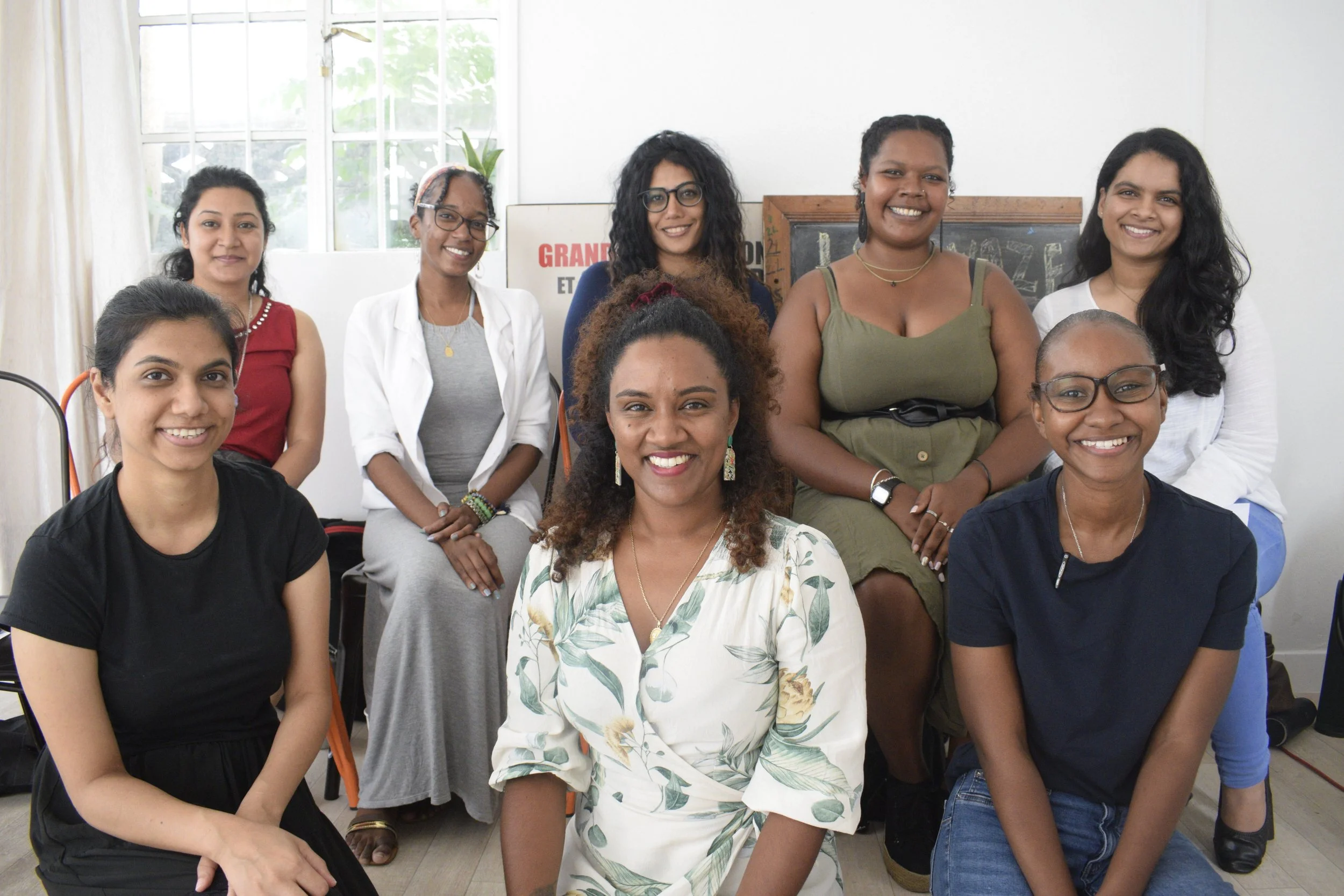Womxn as key contributors to Science, Technology, Engineering, Arts, and Mathematics (STEAM) fields and digital transformation.
Priority Program Areas
The primary focus areas of the AfriTech Fellowship revolve around empowering and supporting the leadership of young people and womxn, promoting entrepreneurship, and fostering STEAM programs. Our core objectives are to enhance the overall recognition of underserved and underrepresented individuals, empower marginalized and disadvantaged communities, and foster social inclusion. We strive to achieve these goals by providing equitable access to resources and advocating for all individuals' fulfillment of fundamental human rights.
The Program Goals and Objectives
-
Offer technology-focused training through the use of a computer lab.
Offer leadership and professional training through online platforms with distinguished STEAM career professionals from the United States.
Create digital interactive products to support fellows’ academic research and or career progression.
Demonstrate an overall positive improvement in all fellows’ leadership and technology skills at the completion of the fellowship.
-
Access to networking and coaching through online platforms.
Access to 1:1 mentorship with professionals from the United States.
Create networking targets for each fellow and include them in the personal leadership development plan.
Create opportunities for fellows to get visibility on a global stage through virtual technology conferences.
Expose fellows to career and education opportunities within the United States.
-
Co-develop with all fellows a Personal Leadership Plan (PLP).
Complete Clifton Strength Assessment for each fellow and integrate outcomes into individual PLPs.
Complete wellness coaching through online platforms.
Develop wellness awareness through in-person group talks.
Jenny Roopnarain - AfriTech Alum 22/23 - Cohort 1
''AfriTech is the bridge that connects STEM, project management, wellness and leadership. It's a dream come true program using technical skills in geospatial intelligence and literacy to advance capabilities of WOMXN. I'm honored to witness inclusive educational investment with thought-provoking concepts for an empowered generation of growth mindset leaders. It even gets better with global mentors. An arena that gets me excited every single day!"

Equity, Diversity, Inclusion, and Belonging (EDIB)
Every voice and experience has value in the workforce, and the connection is a dependency for the successful execution of projects. Therefore, the governance of the AfriTech Fellowship will focus on utilizing an Equity, Diversity, Inclusion, and Belonging (EDI-B) approach and lens for all aspects of curriculum and delivery.
Additionally, a group of diverse professional experts across the United States and Mauritius will infuse the program with real-world context, mentorship, and expertise. We hope this will enable fellows to reduce the disconnect between individuals needing to access the value of technology.
Equity
The guarantee of fair treatment, access, opportunity, and advancement while at the same time striving to identify and eliminate barriers to participation.
Diversity
Psychological, physical, and social differences that occur among any and all individuals
Inclusion
The act of creating environments in which any individual or group can be and feel welcomed, respected, supported, and valued. This inclusivity provides space for them to fully participate and bring their authentic selves.
Belonging
Engages the full potential of the individual where innovation thrives, and views, beliefs, and values are integrated.
Anne Sophie Virassamy - AfriTech Alum 22/23 - Cohort 1
"The AfriTech Fellowship is an amazing experience where I acquired knowledge in GIS, project management, and leadership. I have also learned about myself and my strength as a woman. I met amazing women with different goals and dreams during this journey, and I am thankful to the AfriTech Fellowship Team for this opportunity."
Theory of Change
Our Theory of Change (ToC) was instrumental in helping plan for impact. By understanding our desired goals and outcomes, we were able to identify what activities and resources were required for successful program implementation.




